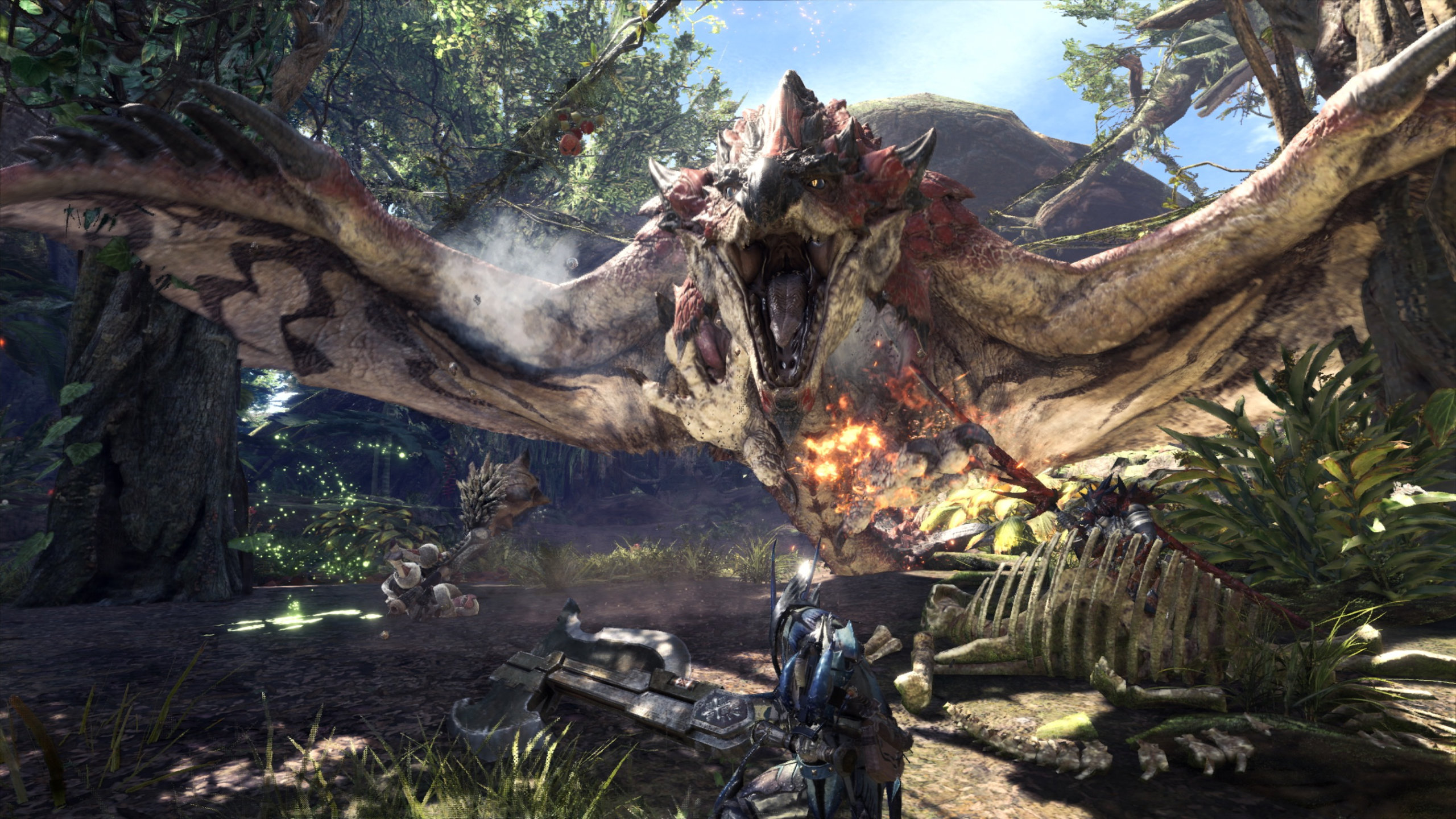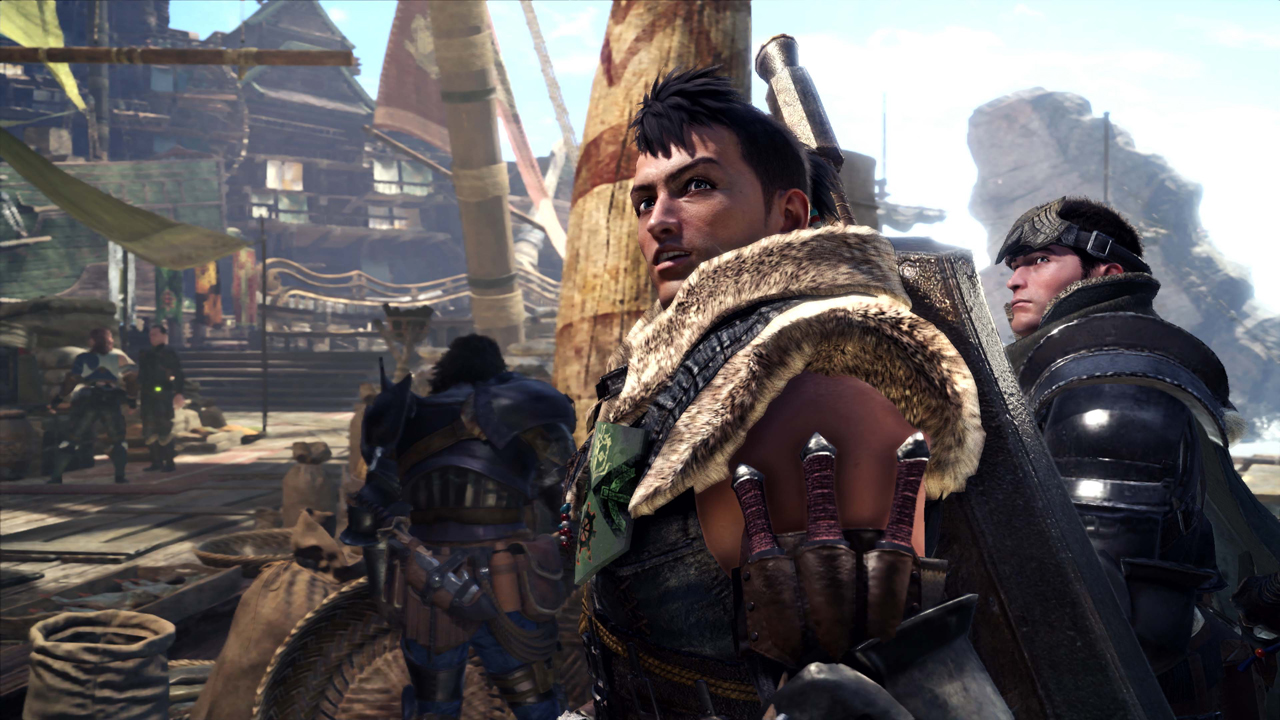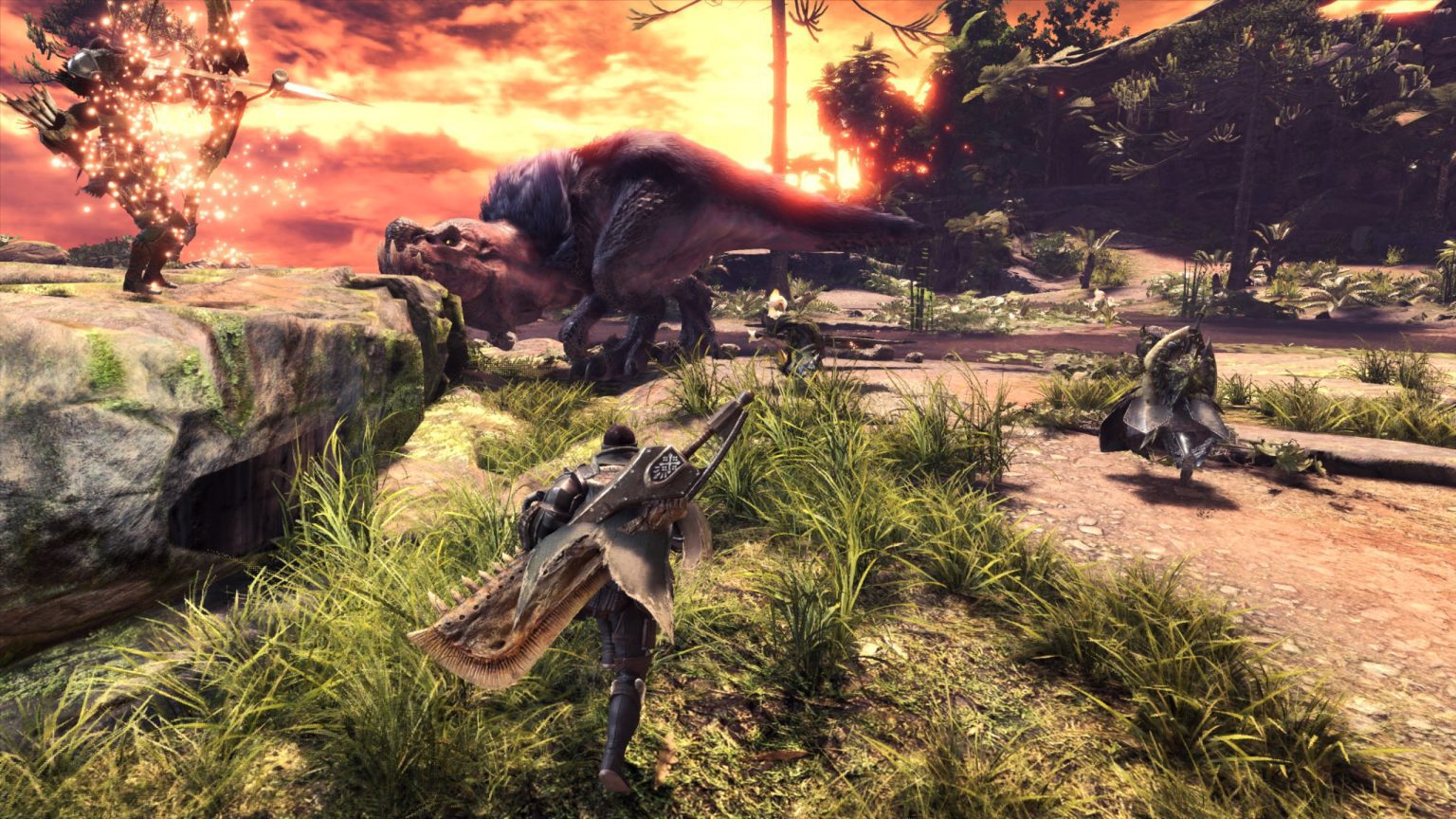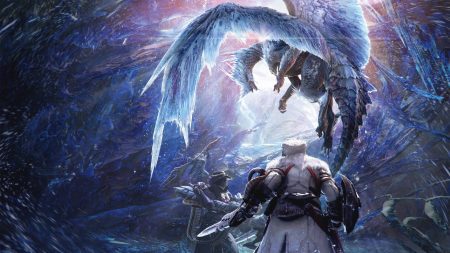Monster Hunter is known for its bombastic monster designs, deliberate action gameplay, and rewarding crafting mechanics. However, the most sublime aspect of Monster Hunter is its fostered community. Whether you’re farming resources to create an optimized build, taking group photos, or getting carted for the billionth time, Monster Hunter at its core is a multiplayer-focused series. No matter how often you struggle with its larger-than-life encounters, you’re never alone.

Starting the Hunt
New players are quick to get overwhelmed by Monster Hunter’s complex mechanics. However, every now and then a veteran player will swoop by, offer their assistance, and even be rewarded for the deed. Yet, this co-op system offers another incentive for both parties to team up: Veterans are reminded of where they were at the beginning of their journey, and beginners get a glimpse of the skills and mastery that lie ahead.
Playing with randoms is the default option for new players to get used to Monster Hunter’s dynamics, culture, and gameplay. Yet, it could be argued that players should start out with their friends first, as it brings out the game’s potential for collaboration. Certain monsters have weak points that are only vulnerable to specific weapons. Each weapon plays differently and has a different niche to fill when it’s time to hunt: Hunting horns buff teammates, light bowguns shoot from afar, and hammers put monsters in a daze. Some players may come with their own special abilities that can help in a pinch, like a wide-range healing ability or buff.
With friends, players are more likely to experiment with different builds and load-outs and figure out a monster’s attack patterns through trial and error. Most randoms are discouraged after trying a handful of times, but Monster Hunter’s difficulty is designed to build tenacity among its players.

More Than a Gathering Hub
This resilience permeates Monster Hunter’s entire community. Here, everyone works toward a common goal—and not toward individual accolades as found in other multiplayer games. There’s a rush of success when a difficult quest is completed; players rejoice in each other’s abilities knowing that everyone had a part to play in the hunt. The cart system adds to the collective dynamic by punishing everyone if a player is killed three times. It’s a reminder that Monster Hunter is focused on the “we,” not the “me.”
With Monster Hunter, you aren’t just playing a game—you’re building a community. No matter what role you play, you’re doing something to make the hunt a worthwhile experience. The Monster Hunter community reminds us that failure does not mean much. It emphasizes improvement of self, rather than the need to surpass those around you. Every action the player initiates has a meaningful effect on the gameplay, leading to a positive multiplayer experience.
Cooperative PvE experiences like Monster Hunter means focusing more on the task at hand than blaming others for failing a mission. It establishes an artificial balance within the game, as antagonism has far less room to flourish when there’s a common goal. Much like nature itself, Monster Hunter lets you cultivate something to last.
Kris is a gaming and fitness enthusiast who loves turn-based and action role-playing games. He also likes talking about gameplay mechanics that add new layers to the genre and the need for diversity in video games. He hopes that gaming can be seen as more than interactive mediums and be looked at as a celebration in the entertainment industry. Whenever he is not playing games, he is crafting poems, writing fictional stories, or working out at the gym. New to journalism, he hopes to be a narrative writer for video games or create his own graphic novel series.









I KNOW THATS RIGHT, HUNTER MONSTER PLAYERS RISE!!! YES, THIS IS EVERYTHING I FEEL WHEN I PLAY!!!!